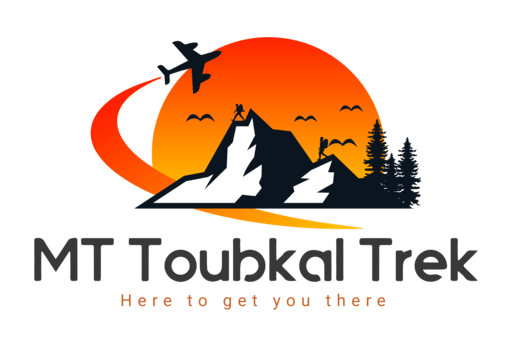Find Answers
Our MT Toubkal Treks team of experienced guides and drivers are dedicated to ensuring your safety, comfort, and enjoyment every step of the way as you explore the best places to visit in Morocco.
FAQ
No, there are no extra fees that you will have to pay on top of the listed price for Toubkal treks. All the costs associated with the trek, including accommodation, meals, and transportation, are typically included in the package price, unless explicitly stated otherwise.
Find the trek that interests you, and then book it directly through the website or contact us via email to discuss your journey and verify availability. Once the specifications of your journey (length, route, and number of people) have been agreed upon, we will create a preliminary booking, including dates and costs.
To confirm your reservation, we request a deposit. This can be in Euros or US dollars. The balance is paid in Morocco at the start of the trip.
Please check the prices and availability of the trek in the schedule provided under the trip description
Yes, the duration and itinerary of the hikes may typically be adjusted to meet your requirements. Variations for certain hikes have previously been highlighted. This should be specified and agreed upon ahead of time, however every effort will be taken to accommodate it along the way. Some alterations may be necessary due to the current weather conditions, and it remains the guide’s right to vary the itinerary in the interest of safety
All treks that start and end due to customer preferences, weather, special situations, or canceled flights are non-refundable. In the case that adverse weather or trail conditions, such as heavy snowfall, necessitate the cancellation of the walk, we will provide an alternative solution or route. However, no refunds will be issued.
Any cancellation, partial or full, must be informed to us in writing by the lead passenger. The following charges will apply, depending on the date we receive your cancellation in writing:
- 50% of total cost: 5- 14 days before departure
- 100% of total cost: less than 2 day before departure
Deposits are not refundable in the event of cancellation by you
All of our treks are private and customized to meet your specific requirements. whether you prefer an easy or challenging trek, a day trip or a week-long expedition, we can tailor the experience to suit you.
Our treks can commence on any day to accommodate your personalized itinerary.
We are here to offer advice on selecting the best options from our exciting range of choices, taking into account your travel dates and abilities
The best time to visit Morocco for adventure travel depends on the specific activities you plan to engage in. The best time to climb Mt Toubkal is not necessarily the best time to visit the Moroccan desert.
Spring (March to May) and autumn (September to November) are generally favorable, with milder temperatures for outdoor activities.
Summer can be hot, especially in desert areas, while winter can be chilly in the mountains.
The country has a mild climate and boasts some of the sunniest days annually in the world. The desert in the south can become quite unbearable in the summer months, so a visit in April and May or October through December ensures preferable temps there. If you plan to come to the High Atlas Mountain region of Morocco, there can be some rain and much snow at altitude from November to March. Many tourists come to Morocco in July and August, when accommodation can be next to impossible to find. A visit in the spring or fall clinches the countries best weather in all the regions.
Average temperatures in the Sahara are often above 30 °C (86 °F). In the peak summer months, particularly June, July, and August, temperatures can exceed 45 to 50°C (113 to 122°F).
About Trekking in Morocco
Because the High Atlas can include some difficult elevation climbs and losses over continuous passes (2000 m+), most High Atlas treks are graded medium, which means you should have recent hill hiking expertise, a light daypack, and a tolerance for climatic change. You’ll need light hiking shoes or boots with a full-tread sole and high-quality outdoor clothes. The high summits remain snow-covered in the spring and fall. The nights could be frigid, but the days could be hot and sunny.
You should be confident in your fitness and endurance levels. The essential recommendation is a spirit of adventure! There is no age limit as long as you are in decent physical shape, understand the hardships of hiking at higher heights, and have valid travel insurance. Please make a point of alerting us (quietly if possible) if you have any medical conditions/allergies or are taking any medications that you believe we should know about. We are out there for a wonderful time, and we want you to feel comfortable in your surroundings.
Accommodation is available in village “houses” known as gites, which have kitchens, sleeping rooms, and showers, or dome tents, or, because Morocco is one of the few places in the world where moderate temperatures mix with an absence of mosquitoes, you can sleep outside. Nothing compares to a night beneath North Africa’s dazzling starlight. Mules transport tents, mattresses, fully equipped kitchens, food, and personal stuff..
All food is provided on the walk and is quite healthy, including couscous, tagine, fresh eggs, fish, olives, almonds, and fruit. Please let us know if you’re vegetarian. Aside from eggs and fish (tuna and sardine), which are frequently served at lunchtime with vegetable salad, there is little meat, and when meat is available, separate dishes such as vegetarian Tagine are created.
Bottled water is frequently available in the communities you pass through, but you may need to purify your own water (we may include this for a small price on some of our treks).
Some people choose to bring their own sweets and food supplements if they have unique dietary needs. If you enjoy drinking herbal teas, bring your own. Moroccan tea, which contains gunpowder green and huge amounts of sugar, is a great energy booster. Without sugar tea can be requested.
Because we are traveling in high mountains, geological changes produce a wide range of weather conditions, which might be chilly, damp, and windy. Bring a thick fleece, a lightweight wind jacket, and long pants. During the day, temperatures are relatively warm or hot, and standard apparel of t-shirts and shorts will suffice. On average, daytime temperatures range between 20 and 30 degrees Celsius
Clothing
- 2-3 base-layer t-shirts (e.g. running t-shirts)
- Fleece/soft-shell jacket • Waterproof jacket
- Insulated jacket for warmth, if possible (from e.g. Rab, Alpkit, Mountain Equipment)
- Spare clothes for Marrakech
- Underwear
- Trekking Trousers
- Waterproof trousers
- Shorts
- 2 pairs of thick wool hiking socks
- Warm Gloves and Hat
- Walking Boots
- Footwear for Marrakech
Other
- Large rucksack for the mules/porters
- Daysack (25-35L)
- 3L of water bottles (Minimum)
- Sunglasses
- Suncream
- Sunhat
- Insect repellant
- Glasses/contact lenses (if needed)
- Sleeping bag (A 2-3 season bag, which is one that can withstand temperatures as low as 5°C or -5°C (for winter) Available to rent @ £10)
- Bathroom items including travel towel
- Lipsil
- Book/mp3 player (optional)
- Walking poles (optional -Available to rent for £5)

